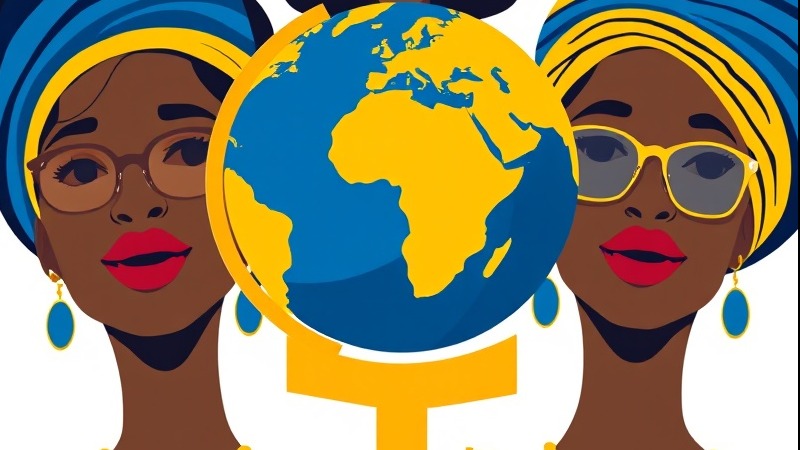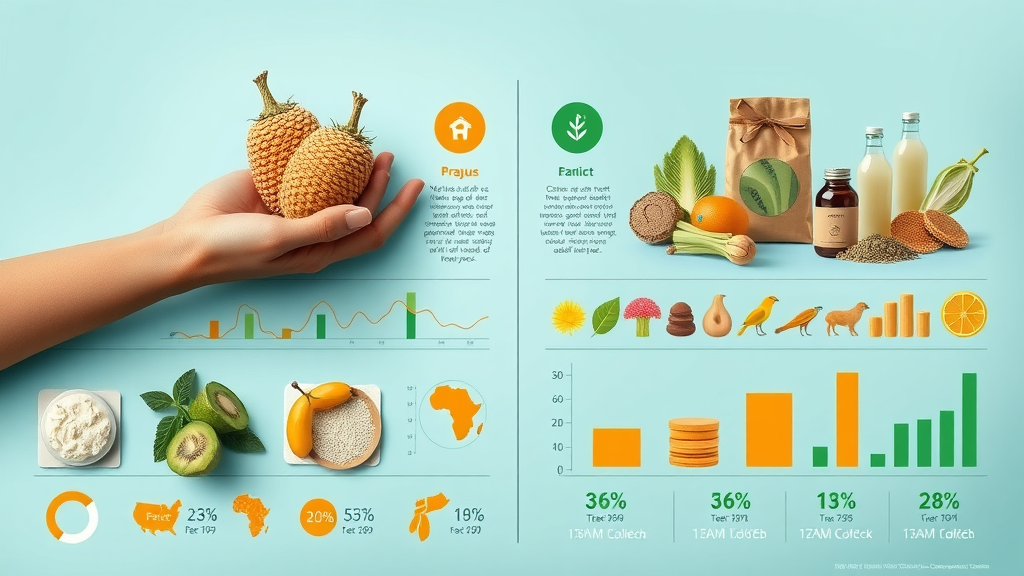
Unlock your true potential with African women leadership development for 21st century personal growth . In today’s dynamic world, African women are not just participating in leadership, they’re innovating, inspiring, and transforming communities across the continent. Whether you’re an aspiring leader or looking to break new ground professionally, understanding how African women are elevating personal growth can help you overcome barriers and achieve remarkable success. Stay with us as we explore actionable strategies, breakthrough case studies, and key lessons to ignite your own leadership journey.
Empowering 21st Century Personal Growth through African Women Leadership Development
In the heart of the 21st century, African women leadership development for personal growth is rewriting the narrative of what it means to lead. No longer confined to traditional roles, African women are embracing innovation, resilience, and collaboration to bring about transformative change in their societies. By honing crucial leadership skills and overcoming unique challenges, they serve as beacons of hope and ambition for future generations.

-
Discover how African women are redefining leadership for a new era
-
Identify barriers and breakthroughs unique to African women leaders
-
Learn actionable strategies for effective leadership development
-
See how personal growth and professional success are intertwined
Current Trends in African Women Leadership Development for 21st Century Personal Growth
In recent years, African women leadership development for 21st century personal growth has seen a dramatic shift from traditional practices to contemporary, globally relevant models. Gone are the days when leadership was defined solely by seniority or lineage. Today, African women are at the epicenter of personal growth, leveraging education, digital tools, and innovative thinking to break new ground. Development initiatives now focus not just on empowering individuals, but on building sustainable networks and systems that foster ongoing success.

Changing economic landscapes and technological advancements require African women leaders to be adaptive, tech-savvy, and culturally sensitive. Programs are increasingly integrating mentorship, peer learning, and international exposure, allowing women to develop the skills needed for global influence. For example, digital learning platforms and e-mentorships are connecting women across urban and rural regions, fostering knowledge exchange and collaboration for shared progress. These trends are rewriting the script for African leadership in the 21st century.
|
|
|
Comparison of Traditional vs. Modern Approaches in African Women Leadership Development for 21st Century Personal Growth |
|
Aspect |
Traditional Approach |
Modern Approach |
|---|---|---|
|
Leadership Style |
Hierarchy-based, seniority-driven |
Collaborative, innovation-focused |
|
Access to Mentorship |
Limited, informal networks |
Structured, global mentorship programs |
|
Skill Development |
On-the-job experience |
Formal training, digital skills, lifelong learning |
|
Resource Utilization |
Family/community support |
Global funding, digital tools, diverse networks |
|
Growth Mindset |
Static, traditional roles |
Dynamic, personal growth orientation |
Core Skills for African Women Leadership Development in the 21st Century
To excel in the fast-evolving landscape of African women leadership development for 21st century personal growth , emerging leaders must cultivate a set of core competencies. These range from emotional intelligence to the ability to communicate effectively, solve problems creatively, and expand professional networks. By fostering these skills, African women can not only inspire others but drive societal change at all levels.
Developing core leadership skills is about more than technical proficiency; it’s about nurturing empathy, adaptability, and a lifelong commitment to self-improvement. These attributes enable leaders to navigate complex social and economic environments, build resilient teams, and leave a lasting impact on their communities.
Emotional Intelligence and Communication
Emotional intelligence is a cornerstone of effective leadership. African women leaders who are self-aware, empathetic, and mindful are better equipped to connect with team members, resolve conflicts, and inspire trust. The ability to communicate vision and feedback effectively ensures that goals are clearly understood and achieved. Whether in a boardroom or community meeting, these leaders engage authentically, turning obstacles into opportunities for collaboration.

Mastering communication also means adapting style to different audiences—using storytelling to motivate, data to persuade, and active listening to understand. As they grow, African women leaders are continually honing their communication skills, ensuring their message resonates and drives action across diverse groups.
Innovation and Problem-Solving
The 21st century demands innovation and creative problem-solving —skills African women are increasingly recognized for mastering. Faced with limited resources, many have pioneered social enterprises, start-ups, and community-based programs that address urgent needs in healthcare, education, and technology. Their willingness to embrace change and experiment with new ideas has led to game-changing breakthroughs.
Problem-solving is not just about reacting to issues but anticipating them—creating proactive strategies that address root causes. African women leaders foster cultures of learning and curiosity, encouraging teams to bring innovative solutions to the table. Their impact is amplified through collaboration, mentorship, and a passion for lifelong learning.
Networking and Mentorship in African Women Leadership Development
Building strong networks and finding the right mentors are critical steps in African women leadership development . These connections offer access to new opportunities, shared resources, and invaluable guidance. African women who engage in structured mentorship programs or join professional associations often progress faster and with greater confidence.

Mentoring also provides a platform to give back—sharing lessons learned, offering encouragement, and helping the next generation of leaders overcome similar hurdles. Through strategic networking, African women are building powerful communities that support both personal and professional growth across the continent.
“African women are not just future leaders—they are driving present change across the continent.”
Challenges Facing African Women in Leadership Development for Personal Growth
Despite progress, African women leadership development for 21st century personal growth still faces formidable challenges. Rooted in history and culture, these barriers require resilience and collective effort to overcome. Navigating these challenges often becomes a testament to the determination and ingenuity of African women leaders.
Cultural expectations, limited access to resources, and inherited gender stereotypes continue to play a role in shaping the path to leadership. Many women must also balance professional ambitions with family responsibilities, making the journey uniquely complex yet rewarding. Addressing these challenges requires not only personal determination but also systemic change.
-
Cultural Barriers
-
Access to Resources
-
Balancing Professional and Family Roles
-
Gender Stereotypes in the 21st Century Workplace
Strategies for Success in African Women Leadership Development for 21st Century Personal Growth
Success in African women leadership development for 21st century personal growth is built on practical strategies that empower women to rise above limitations and seize new opportunities. These strategies involve building self-confidence, pursuing education and training, and leveraging the wisdom of role models and peer networks.
By fostering a supportive environment and setting ambitious yet attainable goals, African women leaders can craft their own success stories. Effective strategies focus not only on individual achievement but on elevating communities and nurturing future leaders.

Building Self-Confidence and Setting Ambitious Goals
Self-confidence is the foundation of personal and professional growth. African women leaders who believe in their abilities are more likely to embrace challenges, take calculated risks, and break new ground. Setting ambitious goals—both short-term and long-term—provides a roadmap to success and fuels motivation.
Goal-setting is not only about aspiration but also about action. By mapping out concrete steps, tracking progress, and celebrating milestones, women can maintain momentum and achieve real impact. African women are learning to celebrate their strengths, acknowledge areas for improvement, and step boldly into their full potential.
Leveraging Education, Training, and Lifelong Learning
Education remains a powerful catalyst for African women leadership development for 21st century personal growth . Today’s leaders invest in continuous learning—formal degrees, professional certifications, and skills training—to remain relevant in rapidly changing industries. Access to e-learning platforms and global training programs has broadened educational horizons, making knowledge and development accessible regardless of geography.
Lifelong learning is not just about accumulating qualifications; it’s about cultivating curiosity, adaptability, and a willingness to change. African women leaders who commit to ongoing education are better prepared to navigate disruptive trends, shape policy, and advocate for systemic transformation.

Harnessing the Power of Role Models and Peer Networks
Aspiring African women leaders find inspiration in those who have walked the path before them. Role models demonstrate what’s possible, while peer networks offer support, accountability, and a safe space to share experiences. By observing the journeys of trailblazers, emerging leaders gain confidence to set their own standards and overcome adversity.
Peer networks facilitate knowledge sharing, collaborative problem-solving, and collective advocacy. They also provide emotional support, helping women persevere in the face of setbacks. In the 21st century, the power of role models and peer connections cannot be underestimated—they are the backbone of sustainable personal and professional growth across Africa.
Breakthrough Case Studies: African Women Excelling in Leadership for the 21st Century
Examining the real-life stories of exceptional African women leaders provides both inspiration and practical insight into African women leadership development for 21st century personal growth . These leaders have transcended barriers, leveraged their unique strengths, and created change on a global scale.
-
Ngozi Okonjo-Iweala – Financing Global Change: As the Director-General of the World Trade Organization, she is a trailblazer in economic policy and global finance, proving that African women can lead at the highest international levels.
-
Graça Machel – Championing Children’s and Women’s Rights: With decades of advocacy, she blazed a trail for education, gender equality, and humanitarian causes, becoming a global symbol of resilience and compassion.
-
Strive Masiyiwa – Empowering Women in Tech Industry: Though a male ally, his initiatives focus on bringing more women into tech startups, supporting African women’s leadership in a traditionally male-dominated field.
Their journeys highlight that with determination, strong networks, and a steadfast commitment to personal growth, African women can realize their highest aspirations and create a more equitable, empowered future.
Video: Inspiring African Women Leaders on Embracing Personal Growth
A curated video collection brings firsthand narratives from African women who share their personal growth and leadership stories. Watch how these leaders embrace innovation, drive community change, and inspire others to strive for excellence. Their actionable advice will empower you to take the next step in your journey.
Whether you seek inspiration or practical tips, these voices resonate with courage, hope, and the conviction that leadership is attainable for every African woman, regardless of background or location.

People Also Ask
What is African Women Leadership Development for 21st Century Personal Growth?
African women leadership development for 21st century personal growth is a comprehensive approach to building leaders who can thrive in modern contexts. It focuses on equipping African women with critical skills, confidence, and access to opportunities to lead effectively in diverse fields. This development is rooted in personal transformation, community upliftment, and lifelong learning.
How can African Women Overcome Barriers to Leadership in the 21st Century?
African women can overcome barriers by embracing education, building professional networks, and seeking out mentorship and sponsorship opportunities. Addressing cultural biases, challenging stereotypes, and fostering supportive environments also play key roles in breaking down barriers. Persistence and a solution-driven mindset are crucial for lasting success.
What Skills Are Most Important for African Women Leaders Today?
The most important skills for African women leaders today include emotional intelligence, effective communication, innovation, adaptability, and strategic networking. These skills enable leaders to navigate complex environments, solve challenges creatively, and sustain personal growth throughout their professional lives.
Can Leadership Development Programs Drive Personal Growth for African Women?
Yes, leadership development programs provide structured pathways for African women to gain skills, confidence, and connections necessary for personal and professional advancement. Such programs foster self-reflection, practical learning, and collaboration, driving lasting growth and empowerment.

Frequently Asked Questions about African Women Leadership Development for Personal Growth
-
How does African Women Leadership Development differ from other leadership initiatives? African women leadership development is tailored to address unique social, economic, and cultural contexts on the continent. It integrates local wisdom, global best practices, and addresses specific barriers African women face in access, representation, and resources. This targeted approach fosters sustainable leadership pipelines and ensures inclusive progress.
-
Are there specific programs aimed at African women in leadership? Yes, many programs specifically support African women’s leadership, offering training, mentorship, and funding opportunities. Organizations such as AWFD, Akilah Institute, and local NGOs create specialized leadership incubation programs that connect women across different sectors and regions.
-
What are the measurable outcomes of African Women Leadership Development? Measurable outcomes include increased representation in executive roles, higher rates of business ownership, community impact, improved self-confidence, and economic advancement. Many programs track progress through mentorship match rates, career advancements, and community project outcomes.
-
How can organizations foster more female leadership in Africa? Organizations can promote gender-inclusive policies, fund women-led projects, provide flexible work arrangements, and implement mentorship programs. Fostering an equitable workplace culture and providing women with platforms to lead are essential steps.
Video: Best Practices for Supporting African Women Leadership Development
This video showcases best practices, practical frameworks, and firsthand accounts from leading African women on navigating the journey to personal growth. Discover how effective mentorship, ongoing education, and inclusive company policies can create brighter futures for African women leaders.
Featuring leading experts, this resource offers invaluable tools for individuals and organizations committed to advancing women’s leadership in Africa today.
Key Lessons from African Women Leadership Development for 21st Century Personal Growth
-
Empowerment and growth are intertwined on the path to leadership
-
Continuous learning and networking lead to real impact
-
Role models inspire new generations of leaders
Each one of these lessons underscores the importance of cultivating a growth mindset, building strong communities, and recognizing the power of representation. As African women continue to break new ground, their achievements ripple outwards, inspiring lasting change.
Moving Forward: How to Begin Your African Women Leadership Development Journey Today
Taking the first step in African women leadership development for 21st century personal growth means actively seeking opportunities to learn, connect, and lead. Whether joining a professional association, enrolling in a leadership program, or finding a mentor, the journey starts with a single, determined move toward self-improvement and influence.

Begin by mapping your goals, identifying strengths to maximize, and building a network of support. Then, invest time in personal development—reading, attending workshops, and staying open to feedback. Remember, every small step moves you closer to realizing your leadership potential and creating meaningful change.
Practical Steps for Sustaining Leadership and Personal Growth
To sustain growth, set clear personal benchmarks and revise them regularly. Stay connected with peer networks and mentors for motivation and accountability. Embrace a habit of continuous learning, seek diverse perspectives, and be open to evolving your approach when necessary—this resilience is key to thriving in African women leadership development for 21st century personal growth.
“Your potential can only be unlocked when you step into your power and support one another.”
You have the strength to build on the African Women Leadership Development for 21st Century Personal Growth—start your journey now!
Commit to action, stay inspired by the achievements of African women leaders, and become part of the movement transforming Africa and the world.
To further enhance your understanding of African women’s leadership development in the 21st century, consider exploring the following resources:
-
“Ellen Johnson Sirleaf Is Forging a New Path for the Next Generation of Women Leaders”
This article profiles Ellen Johnson Sirleaf, Africa’s first democratically-elected female head of state, and her efforts to mentor and empower emerging women leaders across the continent. ( time.com )
-
“Leadership Accelerator Programme for Young African Women”
Offered by LEAP Africa, this program is designed to equip young African women with the skills and knowledge necessary to ascend to leadership positions, addressing the gender disparity in leadership roles. ( leapafrica.org )
These resources provide valuable insights and practical strategies to support your leadership journey.
 Add Row
Add Row  Add
Add 




 Add Row
Add Row  Add
Add 

Write A Comment